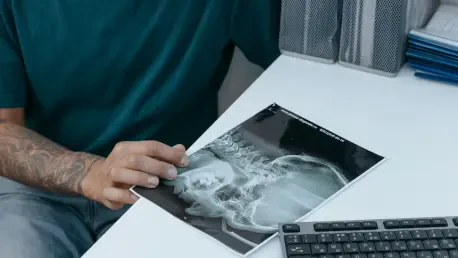In the heart of Harare, Zimbabwe, a dramatic clash between corporate interests and healthcare delivery unfolded at The Avenues Clinic, one of the country’s largest private hospitals. A long-standing medical imaging provider, Baines Imaging Group (BIG), faced an abrupt and forceful eviction from the clinic’s premises, disrupting vital diagnostic services during a critical holiday period. This incident not only sparked legal battles but also raised serious concerns about patient care and the stability of partnerships in private healthcare. The closure of BIG’s radiology department, followed by a court-ordered reinstatement, has become a focal point for discussions on how business disputes can jeopardize essential medical services. What led to this drastic measure, and how was it resolved through judicial intervention? This unfolding story reveals deeper tensions between operational continuity and corporate agendas, shedding light on the fragility of healthcare systems when conflicts arise.
Unpacking the Conflict and Closure
The roots of this controversy trace back to a contentious relationship between BIG and The Avenues Clinic, operated by Medical Investments Ltd. Having provided radiology services at the clinic for over two decades, BIG found itself forcibly removed from the premises without prior notice or legal documentation during a holiday season, a time when healthcare demand often peaks. The clinic’s management cited a disputed arbitration award as justification for the eviction, an action BIG condemned as both illegal and hazardous to patients reliant on diagnostic imaging. The sudden halt of operations left many without access to critical services like CT scans, amplifying the urgency of the situation. Reports of the incident being escalated to local authorities highlight the severity of the disruption. This clash underscores a troubling reality in private healthcare: when business disagreements take precedence, patient welfare can become collateral damage. The eviction painted a stark picture of how swiftly essential services can be undermined by unresolved corporate tensions.
Legal Recourse and Reinstatement
Swift action followed the closure as BIG sought judicial intervention to reclaim its operational space within The Avenues Clinic. The legal remedy came in the form of a spoliation order, a mechanism designed to restore possession to a party unlawfully dispossessed of property. The court’s ruling mandated the clinic to reinstate BIG’s access to key areas, including the Diagnostic Imaging Department, effectively reversing the closure. This decision marked a significant victory for BIG, emphasizing the judiciary’s role in upholding established agreements and protecting healthcare continuity. Beyond the immediate resolution, the incident exposed underlying issues tied to a shift in ownership dynamics at Medical Investments Ltd, with new stakeholders reportedly eyeing control over the lucrative radiology business despite BIG’s lease extending for several more years. The reinstatement not only restored services but also served as a reminder of the importance of legal safeguards in preventing abrupt disruptions. Reflecting on this outcome, the balance between corporate interests and patient needs remains a delicate and often contentious issue.









